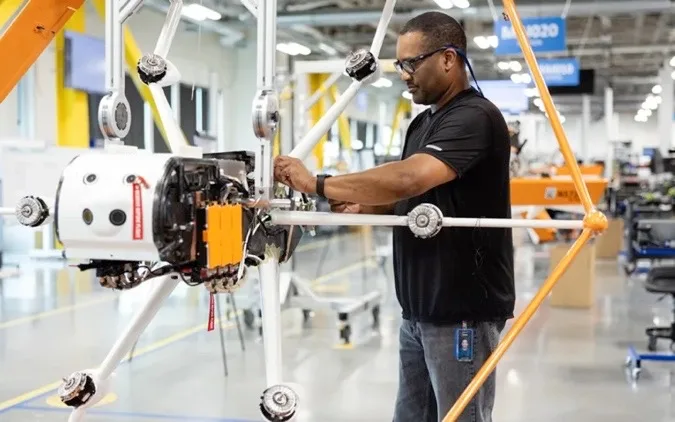The Morning After: Apple’s record service revenue couldn’t make up for falling hardware sales
After the last few years of nonstop growth, Apple reported revenue of $117.2 billion for its first fiscal quarter, which is five percent down year over year, marking the first time Apple’s revenue has dipped since 2019.
That said, the company set a revenue record of $20.8 billion in its Services business and hit over two billion active devices globally. CEO Tim Cook said three things hit revenue: the “challenging macroeconomic environment,” foreign exchange issues and COVID-related supply constraints that led to delays in the ship times of iPhone 14 Pro and Pro Max models. Anecdotally, we’ve heard from several people that ended up canceling iPhone orders over lengthy delays.
It reflects a slowdown across most of the tech industry, with a mixture of lower revenues, decreased profits and general growth slowdown across Meta, Microsoft and Google owner Alphabet.
– Mat Smith
The biggest stories you might have missed
It uses the company’s fastest wireless mouse tech.
Razer
Razer announced its lightest gaming mouse, the Viper Mini Signature Edition. It only weighs 49g, making it 16 percent lighter than the company’s own Viper V2 Pro and one of the most lightweight mice we’ve seen. The mouse uses a magnesium alloy exoskeleton with a semi-hollow interior. It’s light, but it’s not cheap: The $280 mouse will be available on Razer’s website starting February 11th.
Continue reading.
It may have averaged 13 million unique visitors a day last month.
According to a new study by analytics firm UBS (via Reuters and CBS), the OpenAI-developed chatbot was on pace to reach over 100 million monthly active users in January. For comparison, it took TikTok nine months after its global debut to reach 100 million monthly users despite its popularity, especially among younger generations. There isn’t another public chatbot with comparable capabilities. It has reportedly rattled Google’s execs to the point that they decided to declare “code red” and accelerate the company’s AI development.
Continue reading.
Instead of flat sheets, these grafts are shaped to fit better.
The primary shortcoming of bio-printed skin grafts is that they can only be produced in flat sheets with open edges. This method “disregard[s] the fully enclosed geometry of human skin,” argues a team of researchers from Columbia University. Instead, they’ve devised a novel means of producing skin in virtually any complex 3D shape they need — from ears and elbows to entire hands. Scientists can make “fully enclosed” 3D skin tissue that not only fits better but also appears to work better. Initial lab tests with mouse models were encouraging. Dr. Hasan Erbil Abaci, the lead researcher, said: “It was like putting a pair of shorts on the mice.”
Continue reading.
The FAA is said to have placed strict conditions on the Prime Air program.

Amazon
Amazon’s drone delivery program doesn’t seem to be off to a great start. The Prime Air division was said to be hit hard by recent, widespread layoffs. After nearly a decade of working on the program, Amazon said in December that it would start making deliveries by drone in Lockeford, California, and College Station, Texas. According to The Information, however, by the middle of January, as few as seven houses had received Amazon packages by drone. The report suggests that Amazon has been hamstrung by the Federal Aviation Administration, which is said to be blocking drones from flying over roads or people unless the company gets permission on a case-by-case basis.
Continue reading.
All products recommended by Engadget are selected by our editorial team, independent of our parent company. Some of our stories include affiliate links. If you buy something through one of these links, we may earn an affiliate commission. All prices are correct at the time of publishing.
For all the latest Technology News Click Here
For the latest news and updates, follow us on Google News.
